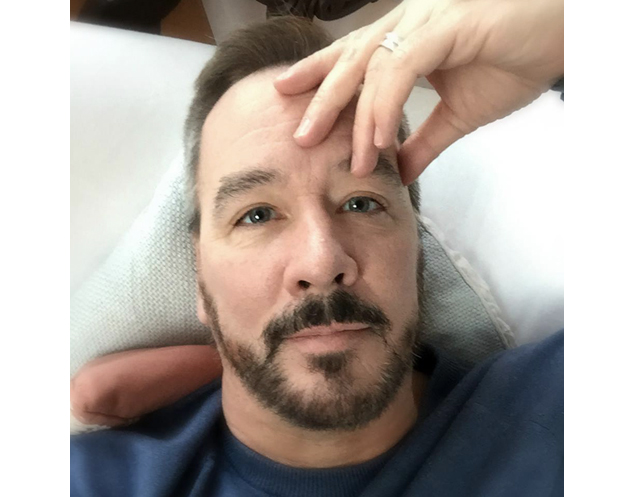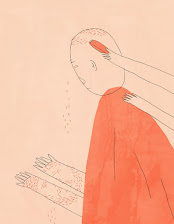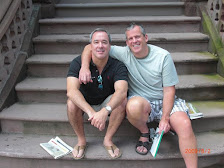When I Woke Up
>> Friday, December 9, 2016 –
essays,
high school essays,
I'll fly away,
love,
standardized exams,
Writing
When
I was floating between jobs in the 1990’s, I worked as a reader. Breadwinner for my young family, and all I could scratch up were the lousy crumbs from a temporary job scoring high school essays, which were part of Ohio's standardized assessment exam.
I had to score the essays on a scale of zero to five. A zero meant there were no words written. A five was stellar, as if perhaps this should be published in a literary journal. A score of one meant they had written something, a word or two, typically some permutation of “This sucks,” or “Fuck you.” Judging by their essays, teenagers in the urban core of Cleveland, Ohio were brimming with hostility. Like most things in life, it was the essays in the middle that got messy. What was the difference between a two and a three, or a three and a four?
Most
of the essays began verbatim, using the writing prompt, “One morning I woke up
and discovered that I could fly.” What often followed was a quotidian trip
drifting through the neighborhood as jealous friends exclaimed, “Hey, you can
fly!!” Many of the girls flew to the mall to go shopping with their friends, or
to Hollywood where they employed celebrities in cameo appearances. Brendan
Fraser often appeared in a loincloth, fresh from his role in “George of the
Jungle.” They would “make out,” but it rarely progressed beyond first base.
Even in uncirculated print, teenage girls fretted about being called a slut.
Then
there were the essays where girls drifted up to bedroom windows and secretly
witnessed stepfathers committing some type of abuse, or boys flew into closets
and stole guns. These were unscored and forwarded to my supervisors; middle-aged
women, who poured over the words, with knitted brows, as they tugged at their
sweaters, pulling them closed.
The
essays were read twice by two different scorers. If we wanted to keep our jobs,
we had to maintain a high accuracy rate with the tandem reader’s score. As my
rate flailed, I worried that my temporary job would become a zero. Many
mornings when I woke up, I wished I could fly away.
“Look,
if the word ‘Slumbering’ is used in an essay, that’s an automatic four,” one of
the readers confided to me in the break room. She was heating up her lunch, a
single sweet potato, in the food-splattered microwave. It was the same thing
she brought in every day. Karen was thin with stringy brown hair and paper-white
skin with a slight blue sheen. She had the unsettling habit of staring at my
forehead during our conversations. When she caught me looking down my nose at
her shriveled-up potato, she glanced at my ham sandwich and said, “I think meat
tastes like dried blood.”
“A
four for slumbering?” I asked, patting the hair on my forehead, checking for
fly-aways.
“Well,
they have to write more than that, but you get the gist. More syllables and
better word choices equals a higher score and vice versa.”
As
my accuracy rate grew, so did my friendship with Karen. We shared the tidbits of
our lives over lunches of sweet potatoes and ham sandwiches. Karen’s dream job was somewhere in the wilds of Wyoming where she could live
and work on a ranch while writing and paying down her Grand-Teton sized school
debt. Mine was to become employed full-time at a job
that offered benefits; it was a three, though at the time I would have scored
it a five.
Here
is the thing about dreams. When life is a one or a two and you’re just trying
to make ends meet, to be like everybody else, a three—somewhere in the
middle—sounds pretty damn good. A five is unfathomable.
Every
once in a while an essay deemed exemplary would be read aloud by a supervisor, giving
us a break from the monotony of kids flying to the ubiquitous mall shopping
trip, or drifting above the popular crowd and dropping egg-bombs. The first essay
I scored as a five resonated deep in my marrow for reasons I could not then
understand. I handed it to my supervisor, chest puffed out, as if I had written
it myself.
“This
is good,” she said. “Beautiful use of language and imagery, but I’m afraid it’s
only a high three, perhaps a four.”
“But,
she used the word slumbering,” I protested, “See? Right there.”
“It’s
poetry, really, but how did the writer change? What do we discover about the
narrator in the end that we did not know in the beginning?” she asked.
In
the essay, the girl drifted above a handsome boy she loved, a honey-colored
moon in his inky black sky. While he slumbered, she tugged at his tides and
painted his face with her moonbeams. She was forever trapped in his orbit.
After
I read the essay to Karen, she put down her fork-full of potato and asked,
“Have you ever been in love like that?”
“Not
yet,” I replied.
Her
eyes fluttered for a moment and then her gaze drifted down from the bulls-eye
on my forehead to the tears rolling down my cheeks.
“I’m
sorry,” she said.
“It
was just such a beautiful essay,” I said, waving my hand in the air, brushing
it off. But, while I was dreaming about life in the middle, this teenage girl
from Sandusky, Ohio burned a hole through my forehead, pulled out a five and
held it up for me to see.
On
Monday morning, Karen didn’t show up for work. Later in the week, I received an
e-mail from her. She woke up Sunday morning and decided to start driving. We
shared fat e-mails about the dusty ranch and the colorful
characters in her new Wyoming town, how the sky was so big, you could see a
storm coming from a hundred miles away and how at night it grew so cold that
when she went to the toilet, she was afraid her stream would freeze up.
I
became employed full time at a company
that offered benefits. I don’t know what happened to
Karen. Our lives got busy and somewhere along the way, we lost touch with one
another. I imagine her steely gaze
looking up at the windswept clouds racing over the Tetons. I lived in that
messy middle for many years, moving up the ladder, hoping each fresh job in
every new city would offer a benefit that the previous one did not, authenticity.
When I finally figured it out, the storm of divorce kicked up and then it passed.
Here’s the thing about dreams, you don’t necessarily have to fly away in order
to make them come true, but you do have to wake up.
I
got up, brushed off the dust and became an IT Director for a prestigious
consulting firm with stellar benefits in Harvard Square. Even so, sometimes at
night, I lie awake, worrying about the college debt my children have amassed and wonder how I'll make ends meet. Then I’ll look over at my new husband Paul slumbering, as the full
moon paints his face. A sense of lightness tugs at me and pulls me up. I am
forever, happily trapped in his orbit. I
found my five.




























